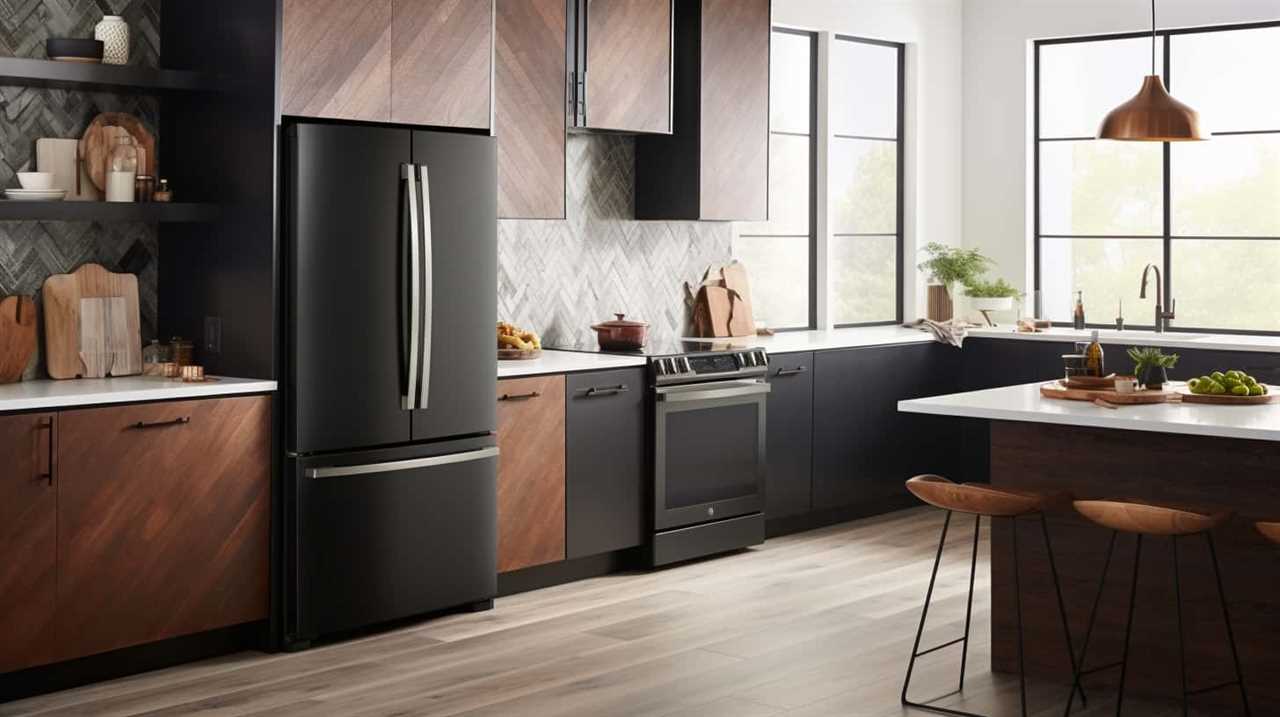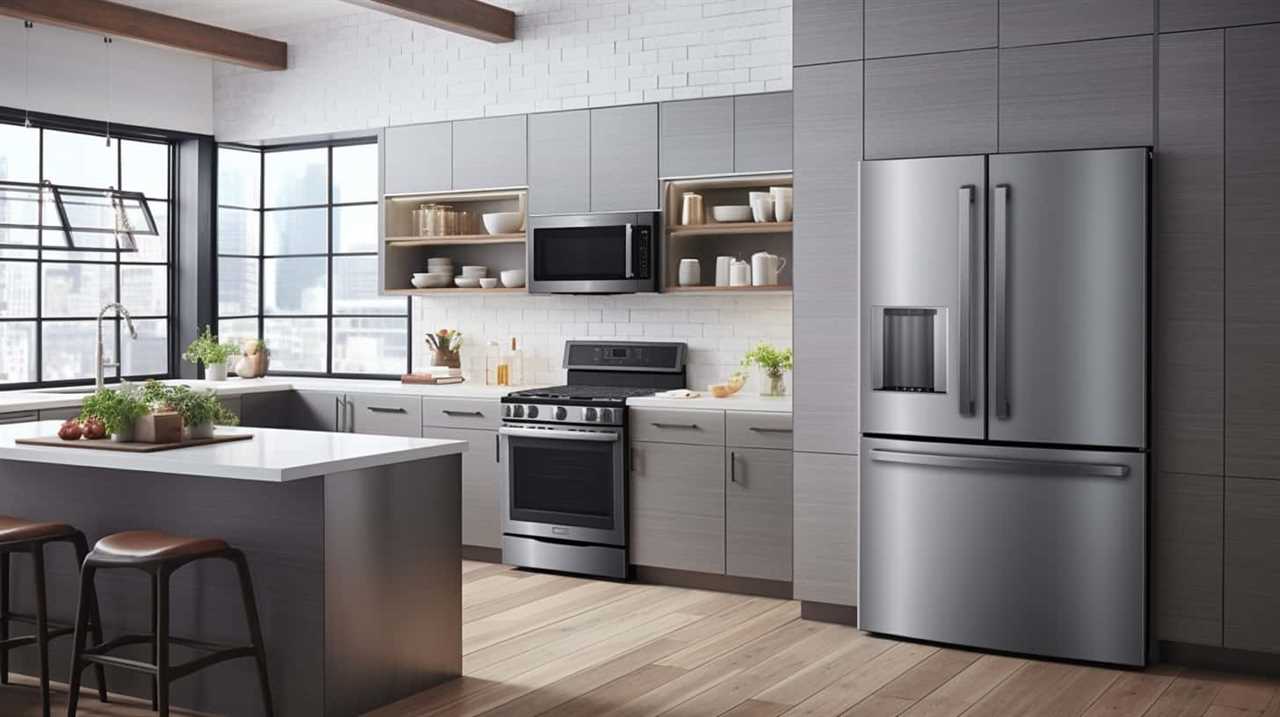In today’s fast-paced and technology-driven world, it is crucial to optimize energy efficiency and minimize wasteful consumption. One easy yet frequently disregarded habit is unplugging appliances when they are not being used. This simple action can lead to a significant decrease in energy usage, resulting in lower utility costs and aiding in the creation of a more sustainable future.
This article will explore the reasons why you should unplug appliances when not in use and the various benefits associated with this habit. From the environmental consequences of standby power to the potential fire hazards, we will delve into the compelling reasons behind this practice.
By understanding the impact and taking action, you can create a safer home environment, extend the lifespan of your appliances, and play your part in conserving energy resources.
Key Takeaways
- Standby power and vampire power contribute to energy waste and can account for up to 10% of household energy consumption.
- Unplugging appliances when not in use eliminates standby power consumption, saves energy, and reduces residential energy usage.
- Unplugging appliances can extend their lifespan, resulting in reduced replacement costs.
- Unplugging appliances reduces the risk of electrical accidents, including fire hazards caused by overheating, short circuits, faulty wiring, and power surges.
Energy Consumption of Appliances on Standby
The energy consumption of appliances on standby is a significant factor to consider when deciding whether to unplug them when not in use. Standby power usage refers to the energy consumed by electronic devices even when they are not actively being used but are still plugged into a power source.

This standby power usage can have a substantial impact on energy consumption and contribute to unnecessary energy waste. Many appliances and electronic devices continue to draw power in standby mode to power features such as clocks, timers, or standby lights. It is estimated that standby power usage can account for up to 10% of a household’s energy consumption.
Impact of Vampire Power on Energy Bills
Vampire power, also known as standby power or phantom load, refers to the energy consumed by electronic devices when they are plugged in but not in use. This energy consumption may seem insignificant on an individual basis, but it can add up over time and significantly impact energy bills.
Energy-Saving Benefits of Unplugging
Numerous energy-saving benefits arise from unplugging appliances when not in use, specifically due to the significant impact of vampire power on energy bills.
- Reduced electricity consumption: Unplugging appliances eliminates standby power consumption, also known as vampire power, which accounts for up to 10% of residential energy usage. By disconnecting appliances from power sources, you can conserve electricity and lower your energy bills.
- Prevention of phantom loads: Many devices, such as televisions, computers, and phone chargers, continue to draw power even when turned off. Unplugging these devices prevents phantom loads, ensuring that no energy is wasted unnecessarily.
- Extended lifespan of appliances: Constantly leaving appliances plugged in can lead to wear and tear, reducing their lifespan. By unplugging them when not in use, you minimize the strain on their components, which can result in longer-lasting appliances and reduced replacement costs.
Reducing Vampire Power Consumption
Reducing the consumption of vampire power, also known as standby power, is crucial in minimizing its impact on energy bills. Vampire power refers to the electricity consumed by appliances even when they are turned off or in standby mode. This phenomenon is responsible for significant energy waste and can result in higher energy bills.
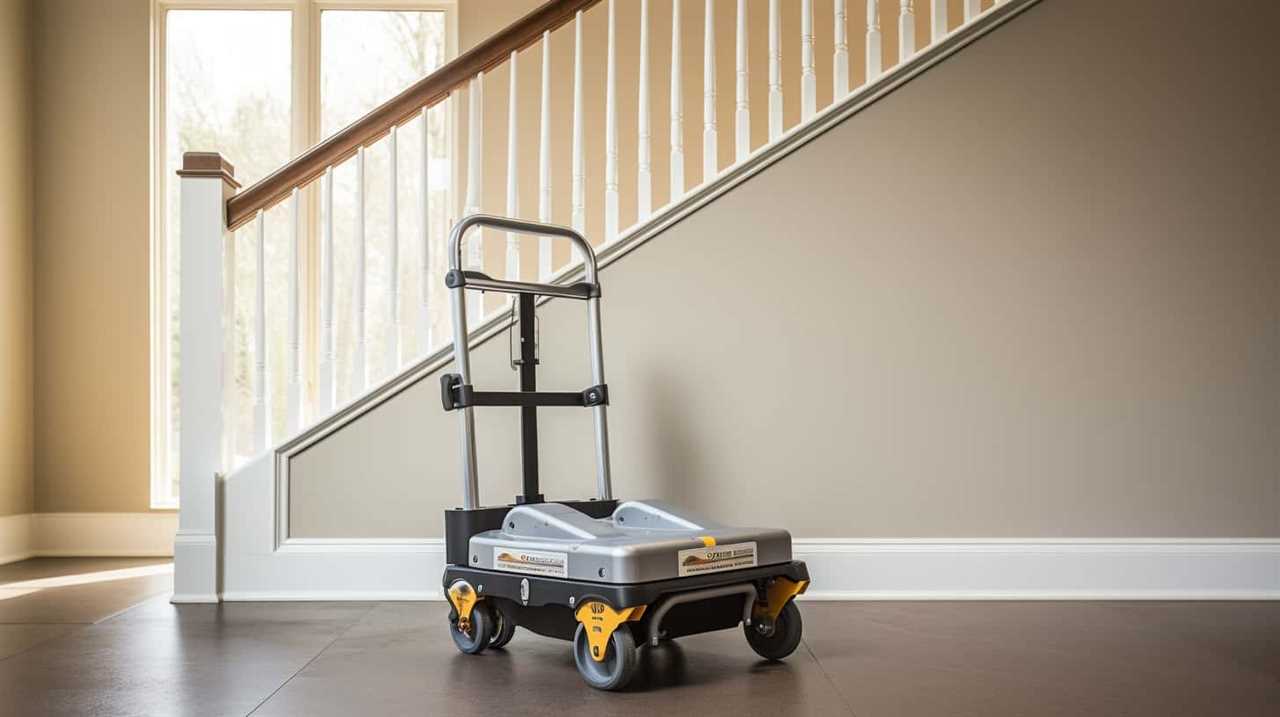
By unplugging appliances when they are not being used, you can effectively reduce standby power and minimize energy waste. This simple action can have a noticeable impact on your energy consumption and help you save money on your monthly bills.
Environmental Consequences of Standby Power
The environmental consequences of standby power are twofold: energy waste and pollution. Standby power, also known as vampire power, refers to the energy consumed by appliances and electronic devices when they are not in use but are still plugged in.
This wasted energy contributes to increased carbon emissions and a larger carbon footprint. By unplugging appliances and reducing standby power, individuals can play a significant role in reducing their environmental impact.
Energy Waste and Pollution
Standby power usage contributes to energy waste and pollution, posing significant environmental consequences. Here are three reasons why standby power is detrimental to the environment:

- Energy waste: Appliances in standby mode continue to consume energy even when not in use. This wasted energy adds up and contributes to the overall energy consumption of a household or business, leading to higher electricity bills and increased greenhouse gas emissions.
- Increased pollution: The production and distribution of electricity result in pollution, primarily through the burning of fossil fuels. By leaving appliances on standby, we unnecessarily contribute to this pollution, exacerbating climate change and air pollution problems.
- Resource depletion: Using standby power means we are using more energy than necessary, putting additional strain on our already limited resources. By reducing standby power usage, we can conserve energy and reduce the demand for fossil fuels.
Carbon Footprint Reduction
One significant environmental consequence of standby power is the increase in carbon footprint. When appliances are left plugged in and in standby mode, they continue to consume energy, contributing to greenhouse gas emissions. This carbon footprint can be reduced by unplugging appliances when not in use.
Additionally, investing in energy efficient appliances can significantly decrease standby power consumption. Energy efficient appliances are designed to use less energy, reducing both the overall energy consumption and carbon emissions.
Another way to reduce carbon footprint is by utilizing renewable energy sources. By transitioning to renewable energy sources such as solar or wind power, the carbon emissions associated with standby power can be eliminated altogether.
Taking these steps can make a significant impact in reducing carbon footprint and mitigating the environmental consequences of standby power.

Reduction in Energy Waste Through Unplugging
Unplugging appliances when not in use can significantly reduce energy waste. By adopting this simple habit, you can contribute to a more sustainable future and lower your carbon footprint. Here are three reasons why unplugging is an effective way to reduce energy waste:
- Reducing standby power: Many appliances continue to draw power even when they are turned off, known as standby power. Unplugging these devices eliminates this wasteful energy consumption.
- Energy saving tips: Unplugging appliances is a practical energy-saving tip that requires minimal effort but can yield significant results. It is a small change that can make a big difference.
- Environmental impact: By reducing energy waste, we can conserve natural resources and reduce greenhouse gas emissions, leading to a healthier planet for future generations.
Benefits of Saving on Energy Costs
Saving on energy costs by unplugging appliances when not in use offers two significant benefits.
First, it helps lower electricity bills, providing households with valuable savings that can be allocated towards other expenses.
Second, it contributes to environmental sustainability by reducing energy consumption, thereby minimizing the carbon footprint associated with generating electricity.

Lower Electricity Bills
Lowering electricity bills by minimizing energy consumption is a key advantage of disconnecting appliances when they are not in use. This practice promotes energy efficiency and helps individuals save on their monthly expenses.
Here are three ways unplugging appliances can lead to lower electricity bills:
- Standby Power: Many appliances continue to draw power even when they are turned off but still plugged in. This standby power, also known as vampire power, can account for a significant portion of a household’s energy consumption. By unplugging appliances, you can eliminate this unnecessary energy usage.
- Phantom Load: Certain devices, such as chargers and power adapters, consume electricity even when they are not actively charging or being used. Disconnecting these devices when not in use can prevent them from adding to your energy costs.
- Energy Conservation: Unplugging appliances when not in use encourages you to be more mindful of your energy consumption. This heightened awareness can lead to other energy-saving habits, such as using energy-efficient appliances and turning off lights when leaving a room.
Environmental Sustainability
Promoting environmental sustainability is a significant advantage of minimizing energy consumption and reducing energy costs through the practice of unplugging appliances when not in use. By doing so, individuals can contribute to a greener future by reducing their carbon footprint and conserving valuable resources.
In addition to the environmental benefits, there are also economic advantages to consider. Investing in energy-efficient appliances can significantly reduce energy costs in the long run. These appliances consume less electricity, which not only saves money but also reduces the demand for power generated from non-renewable sources.

By making a conscious effort to unplug appliances and invest in energy-efficient options, individuals can play an active role in preserving the environment and promoting sustainable practices.
Transitioning to the importance of reducing the carbon footprint, let’s explore how unplugging appliances can contribute to this goal.
Importance of Reducing Carbon Footprint
Reducing our carbon footprint becomes imperative when considering the environmental impact of leaving appliances plugged in when not in use. By reducing our carbon footprint, we can minimize the release of greenhouse gases into the atmosphere and contribute to environmental conservation. Here are three reasons why reducing our carbon footprint is important:
- Mitigating climate change: The excessive emission of greenhouse gases, such as carbon dioxide, contributes to the warming of the Earth’s atmosphere. By reducing our carbon footprint, we can help mitigate climate change and its devastating effects.
- Preserving natural resources: Many appliances rely on fossil fuels for energy, which leads to the depletion of non-renewable resources. By unplugging appliances when not in use, we conserve energy and reduce the demand for fossil fuels, thereby preserving natural resources.
- Promoting sustainable living: By actively reducing our carbon footprint, we promote sustainable living practices. This includes adopting energy-efficient appliances, using renewable energy sources, and implementing eco-friendly habits. These actions not only benefit the environment but also contribute to a more sustainable future for generations to come.
Unplugging as a Simple and Effective Solution
One effective way to conserve energy and reduce environmental impact is by regularly unplugging appliances when they are not in use.

Unplugging appliances is a simple and cost-effective solution that can significantly reduce energy consumption. Many appliances, such as televisions, computers, and phone chargers, continue to draw power even when they are turned off but remain plugged in. This phenomenon is known as standby power or vampire power.
By unplugging these appliances, you can eliminate this wasted energy and save on your electricity bill. Unplugging also helps to extend the lifespan of your appliances by protecting them from power surges.
Incorporating this practice into your daily routine is an easy and effective way to contribute to energy conservation efforts and reduce your carbon footprint.
Extending the Lifespan of Appliances
Unplugging appliances when not in use contributes to energy conservation efforts and also helps in extending the lifespan of these essential household devices. By adopting this simple habit, you can promote energy efficiency and reduce your carbon footprint.
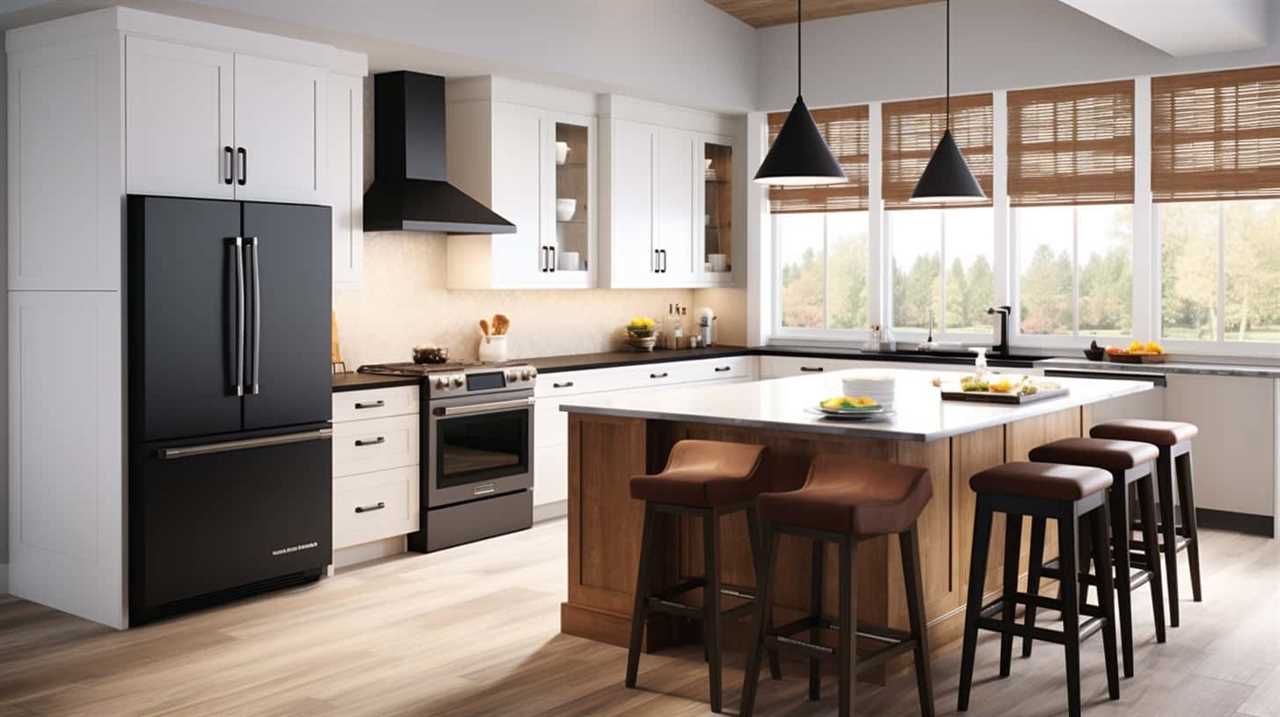
Here are three ways in which unplugging appliances can extend their lifespan:
- Minimizes wear and tear: When appliances are plugged in constantly, they are subjected to a constant flow of electricity, which can lead to overheating and increased wear and tear. By unplugging them, you give them a break and reduce the strain on their internal components.
- Prevents power surges: Power surges can occur unexpectedly and damage the sensitive circuitry in appliances. By unplugging them, you eliminate the risk of power surges and protect your devices from potential harm.
- Reduces the risk of electrical faults: Faulty wiring or defective electrical components can cause appliances to malfunction or even catch fire. By unplugging them when not in use, you minimize the chances of such electrical faults and ensure the safety of your home.
By extending the lifespan of your appliances through unplugging, you not only save money on repairs and replacements but also contribute to a more sustainable and energy-efficient lifestyle.
Now, let’s explore how avoiding potential fire hazards is another crucial reason to unplug appliances when not in use.
Avoiding Potential Fire Hazards
To mitigate the risk of potential fire hazards, it is essential to ensure that appliances are unplugged when not in use. Leaving appliances plugged in can lead to electrical accidents and increase the chances of a fire breaking out.

When appliances are left plugged in, there is a continuous flow of electricity running through them, which can result in overheating and short circuits. This can cause damage to the internal wiring and components of the appliance, leading to malfunctions and potential fire hazards.
Additionally, unplugging appliances not only prevents damage to the appliances themselves but also reduces the risk of electrical fires caused by faulty wiring or power surges.
Creating a Safer Home Environment
Maintaining a safe living environment is paramount when it comes to unplugging appliances when not in use. By adopting this simple practice, you can create a safer home environment for yourself and your loved ones. Here are three reasons why appliance maintenance contributes to a safer home:
- Prevents electrical hazards: Unplugging appliances reduces the risk of electrical fires, short circuits, and electric shocks, ensuring the safety of everyone in your household.
- Minimizes tripping hazards: Leaving appliances plugged in can lead to tangled cords, creating potential tripping hazards. By unplugging them, you eliminate this risk and reduce the chances of accidents and injuries.
- Protects against power surges: Power surges can damage appliances and even cause fires. Unplugging your appliances when not in use safeguards them from such surges, prolonging their lifespan and keeping your home safer.
By prioritizing safer home practices like appliance maintenance, you are taking a crucial step towards creating a secure living environment.
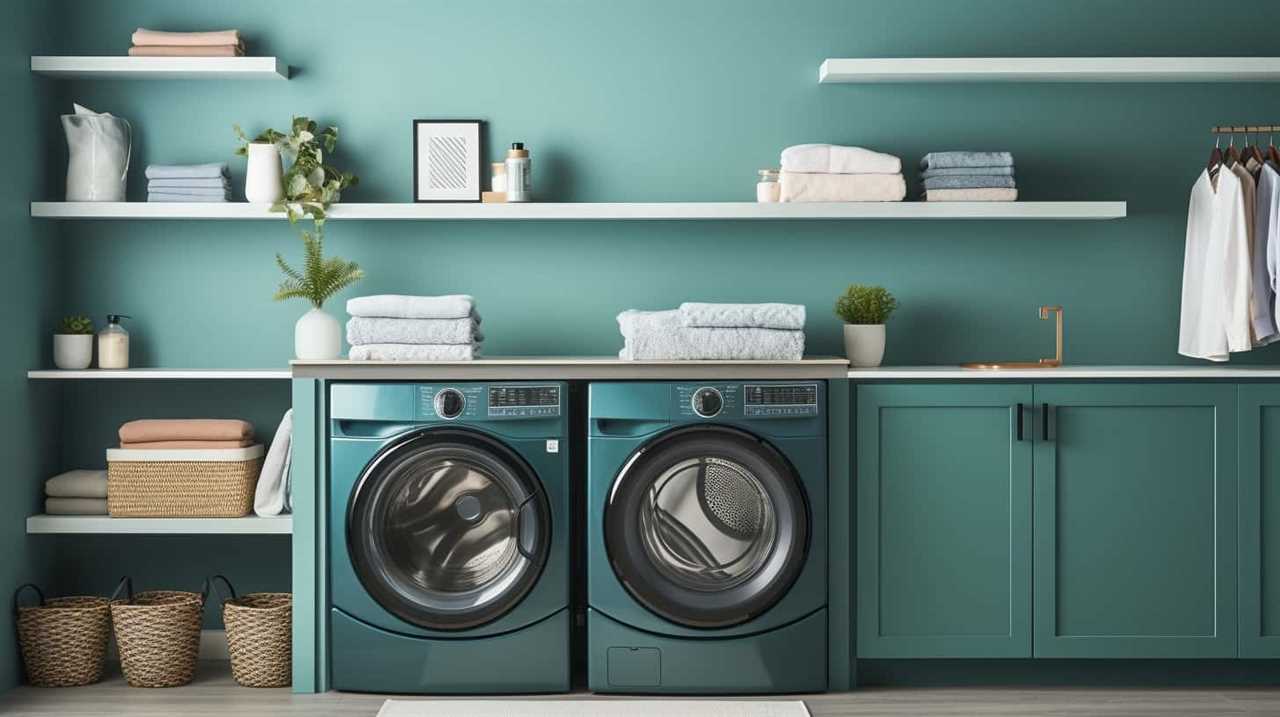
Now, let’s delve into how unplugging appliances also contributes to a sustainable future.
Contributing to a Sustainable Future
Practicing responsible energy consumption through the unplugging of appliances contributes to a sustainable future. By taking small actions like unplugging appliances when not in use, individuals can significantly reduce their carbon footprint and make a positive impact on the environment. This simple habit helps to conserve energy, reduce electricity bills, and extend the lifespan of appliances. Additionally, investing in energy-efficient appliances and utilizing smart home technology can further contribute to a sustainable future. Energy-efficient appliances are designed to use less energy while still providing the same level of functionality, resulting in reduced energy consumption and lower utility bills. Smart home technology allows users to monitor and control their appliances remotely, optimizing energy usage and reducing waste. Together, these actions and technologies play a vital role in creating a more sustainable and environmentally-friendly future.
| Benefits of Unplugging Appliances | Benefits of Energy-Efficient Appliances | Benefits of Smart Home Technology |
|---|---|---|
| Reduces energy consumption | Saves energy and lowers utility bills | Optimizes energy usage |
| Lowers electricity bills | Reduces carbon footprint | Enables remote monitoring and control |
| Extends the lifespan of appliances | Provides the same functionality with less energy | Reduces waste and improves efficiency |
| Contributes to a sustainable future | Promotes a greener lifestyle | Enhances convenience and comfort |
Frequently Asked Questions
How Can Unplugging Appliances When Not in Use Reduce Energy Waste?
Unplugging appliances when not in use can reduce energy waste, resulting in lower electricity bills and minimizing the environmental impact. This simple action helps conserve energy and promotes sustainability, making it a wise choice for those seeking to achieve energy efficiency.
What Are Some Potential Fire Hazards Associated With Leaving Appliances Plugged In?
Electrical safety is of utmost importance when it comes to preventing potential fire hazards. Leaving appliances plugged in increases the risk of overheating and electrical malfunctions, making it crucial to unplug them when not in use.

How Does Unplugging Appliances Contribute to a Safer Home Environment?
Unplugging appliances when not in use promotes a safer home environment by reducing electricity consumption and minimizing the risk of electrical hazards. This practice enhances electrical safety and contributes to a more energy-efficient household.
Can Unplugging Appliances Actually Extend Their Lifespan?
Unplugging appliances when not in use can indeed extend their lifespan. By doing so, energy efficiency benefits are maximized, resulting in long-term cost savings. Similar to a dormant plant, appliances conserve energy when unplugged, promoting longevity.
What Are Some Other Ways to Reduce Energy Consumption and Contribute to a Sustainable Future?
To contribute to a sustainable future, it is crucial to adopt energy efficient lighting and utilize renewable energy sources. These practices reduce energy consumption and promote environmental preservation, making them integral to a greener and more sustainable lifestyle.
Conclusion
In conclusion, unplugging appliances when not in use has numerous benefits.
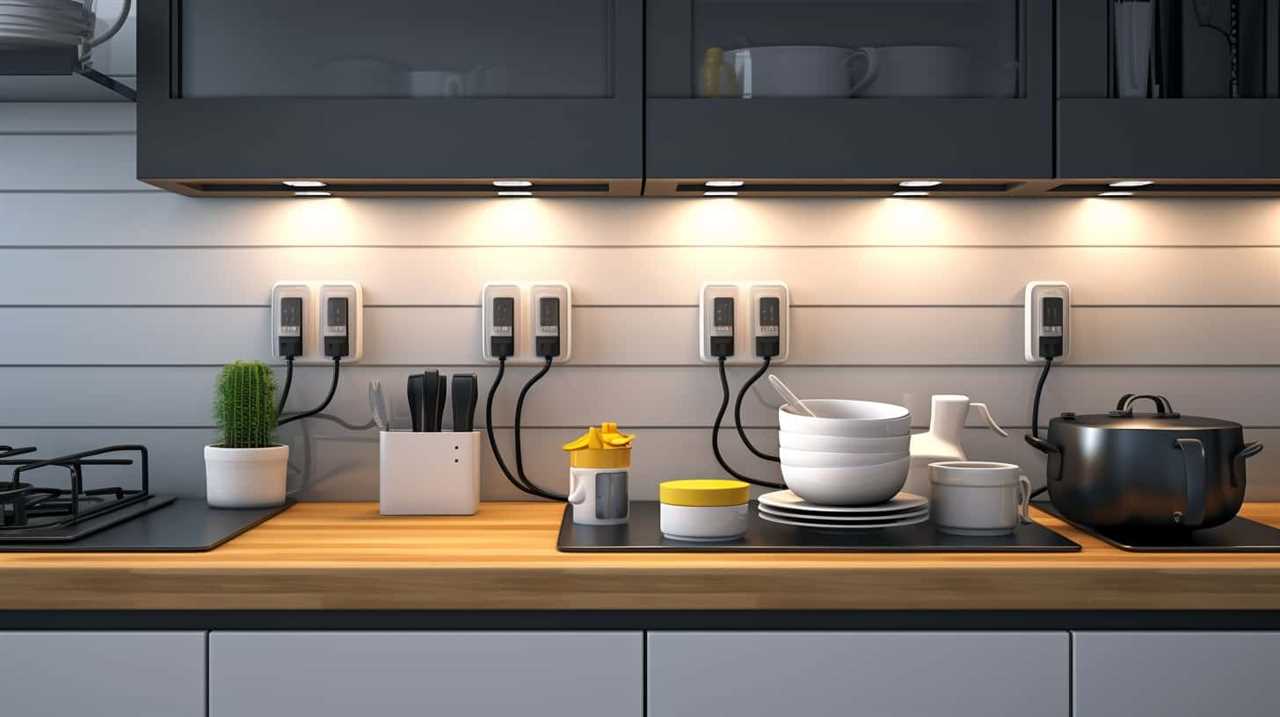
These benefits include reducing energy consumption, saving on energy costs, extending the lifespan of appliances, avoiding fire hazards, creating a safer home environment, and contributing to a sustainable future.
By eliminating standby power, also known as vampire power, individuals can make a significant impact on their energy bills and the environment.
Unplugging appliances is a simple and effective way to conserve energy and promote sustainability.

